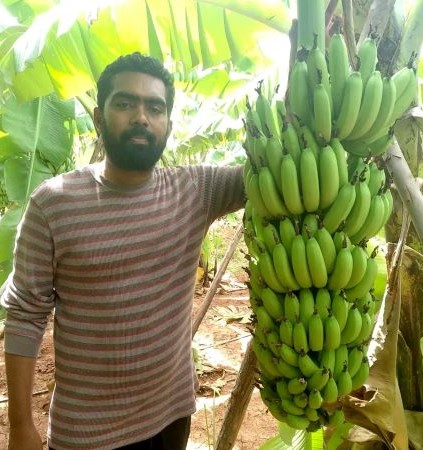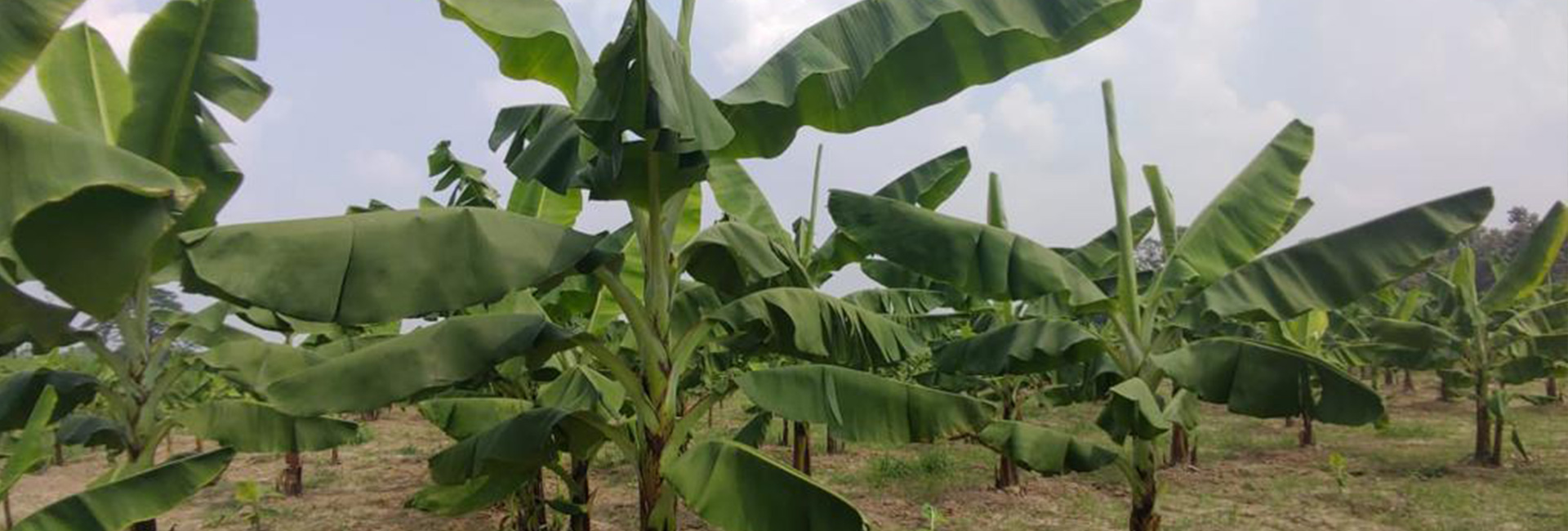
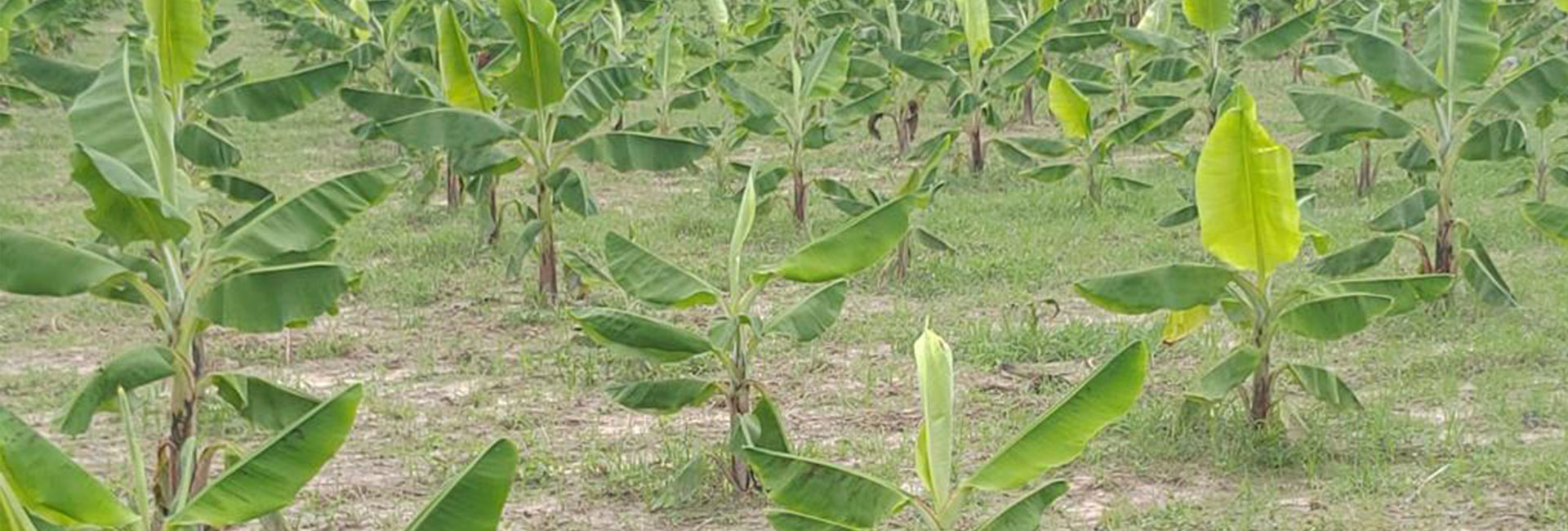
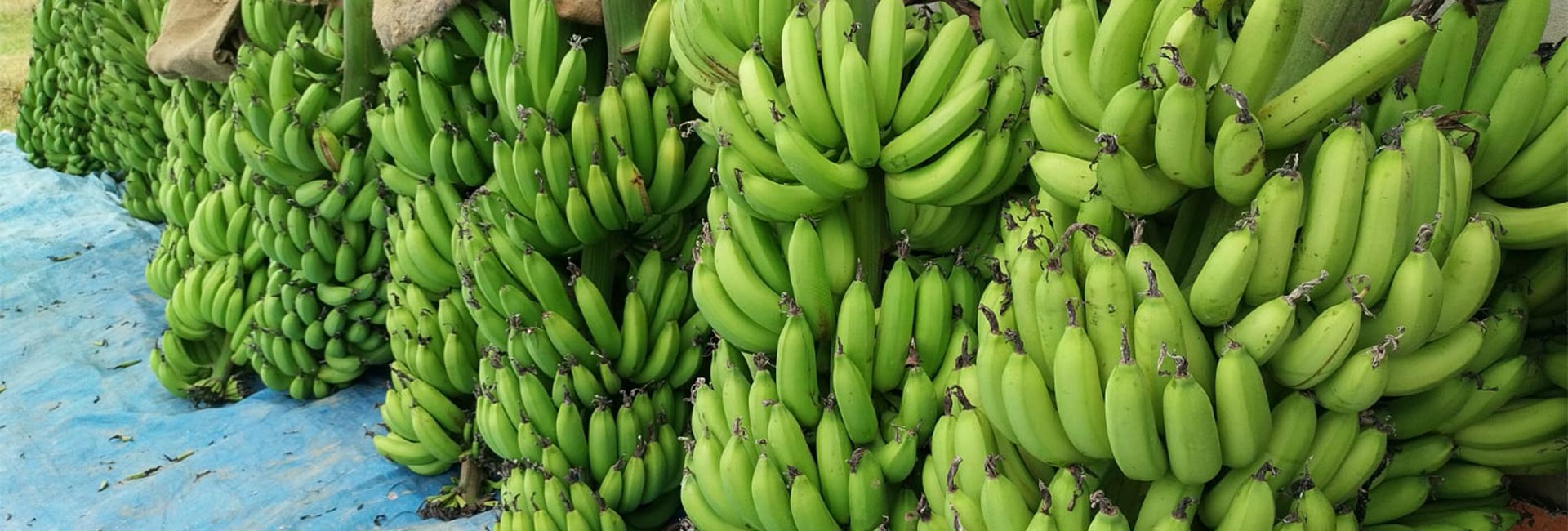
Krishi Rasayan Pvt. Ltd leads the way in Plant Tissue Culture in Eastern India. We began our journey into Plant Tissue Culture 8 years ago, starting with Potato. Now, we've expanded into G9 Banana plants, equipped with over 8000 sq ft of lab space and a 2-acre Shade Net Poly House. Our goal is to produce 2.5 million plants every year.
What makes us unique is our deep knowledge and extensive trial-and-error research. We not only maintain a 10-acre showcase plot in Nadia but also subject every batch of Krishi kela suckers to Genetic Fidelity Tests, Virus Indexing, and IPQC.
Our entire lab adheres to stringent standards, and we firmly believe that the key to agricultural growth is doubling the per-acre yield for farmers.

Square Feet of
Laboratory

Acres of Shade
Net Poly House

Million Plants
per Annum
Tissue culture is a method of growing plants using a small part, a single cell, or a group of cells in a controlled and clean environment, like a test tube. It's a modern way of breeding plants that started around the 1950s. Since regular breeding methods couldn't keep up with the demand for crops, tissue culture became a big step forward in plant breeding. It takes a part of a plant and makes many copies quickly. It works because plant cells have the amazing ability to become a whole new plant, no matter where they come from in the original plant.
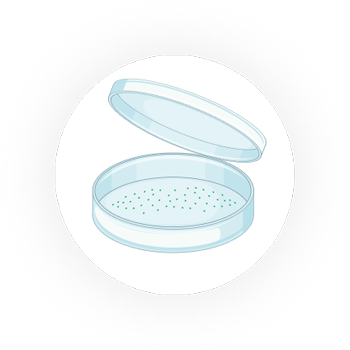

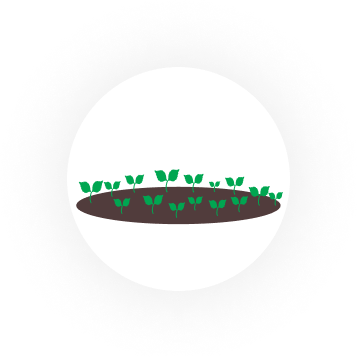
The company's mission is to make Indian farming economically viable, safe, and sustainable. Over the years, the company has endeavored to set the standards for providing the highest quality products through the utilization of state-of-the-art production techniques with an ultimate focus on satisfying the requirements and needs of their customers.
